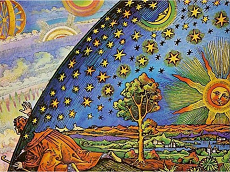I will start by saying that I understand the math of Quantum Mechanics (QM) only in a highly conceptual way. Understanding the math to the point that one can calculate quantum mechanics problems, requires familiarity with matrix math and partial differential equations, and more. This requires several years of calculus.
However, I do have a basic conceptual understanding of QM. I understand its logic, which is my interest. If I were to be interested in using QM to work in electronics or as a physicist, I would need to take several years of calculus, classical physics, and QM. But that is not my interest.
I got interested in QM about 3 years ago. I’m interested in its implications for the nature of reality. But I didn’t have sufficient math nor classical physics to take a course in it. I had high school chemistry (no physics at all) and one semester of college calculus.
I started by reading biographies of quantum physicists, which usually contain some highly conceptual info about QM. I also watched beginner’s Youtube video lectures and animations. The best is a series called “Looking Glass Universe.” Even though I didn’t understand a lot of it, I would watch and re-watch, look up words, look for easier videos, anything needed to make progress.
Then, I studied four physics courses for non-scientists—meaning courses with very little math. These emphasized modern physics (QM and relativity). One was a textbook, Physics by Art Hobson, published by Pearson Custom Library, available on Amazon. The next two were audio books in The Great Courses series: Modern Physics and also Particle Physics for Non-Physicists. I listened to these while doing housework and cooking. They probably would each take a semester each if they were college courses. The fourth course was a DVD series by the Teaching Company: The Theory of Everything by Dr. Don Lincoln.
In between these courses, I read many books on QM for lay readers. The best of these were Quantum, A Guide for the Perplexed by Jim Al-Khalili and Understanding Our Unseen Reality by Ruth E. Kastner. They’re useful once you’ve read some biographies and looked at a lot of Youtube videos for beginners. I got something out of all the books that I read or listened to—the understanding slowly builds.
I also reviewed all my earlier math with Khan Academy lessons—I had forgotten most of second year algebra, trig, and I had never learned matrix math. Then, I completed re-doing the first semester of calculus with an on-line free course that Ohio State University offers. Now, I’m into the second semester of calculus. I really enjoy math but have only average ability at it.
While I don’t attempt the math of QM, I find that having some understanding of calculus is quite helpful. I’ve pieced together a basic understanding of the Schrodinger’s Equation (a key QM equation), though I’m several years of calculus away from being able to calculate with it.
When I can’t understand something, I look up words on the Internet, watch videos about it on Youtube, and re-listen to audio books and re-listen and re-listen. I’ve listened to some of my audio book lectures maybe 15 times (I do a lot of housework and cooking!).
I think younger people make brain connections far faster than us oldsters (I’m 71). But I think that re-listening or re-reading, so long as one is looking up the words, is key. For me, the conceptual understanding comes slowly, and that is always what I’m going for.
I’m currently writing an encyclopedia of quantum physics for lay audiences (like myself) www.QuantumSkylight.com. That forces me to really understand—or I can’t write it. I’m learning more every day as I work on the encyclopedia.
